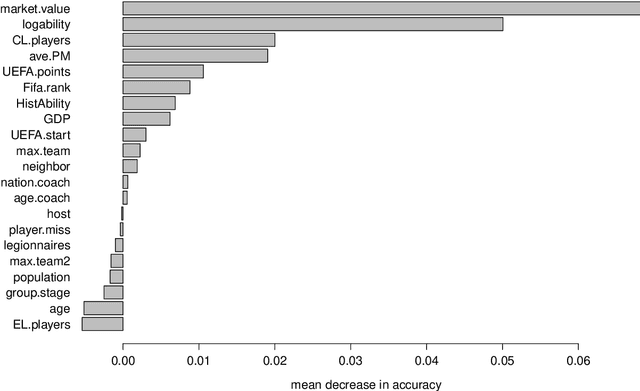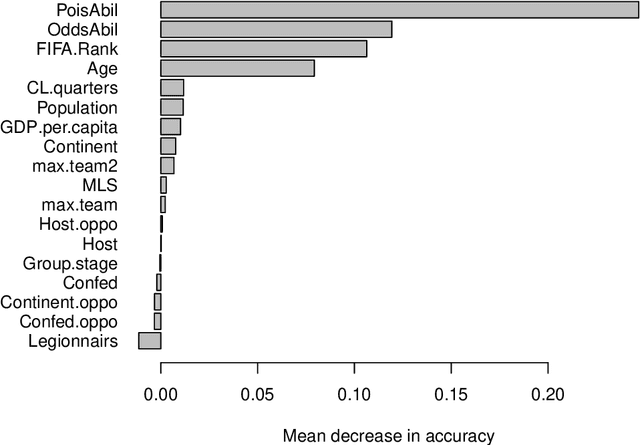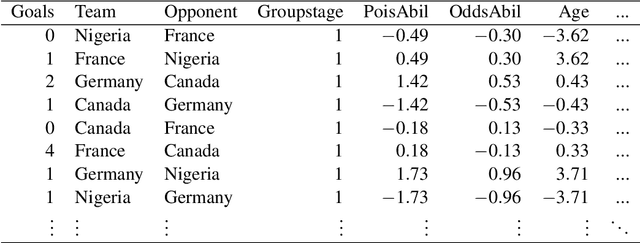Hans Van Eetvelde
Hybrid Machine Learning Forecasts for the UEFA EURO 2020
Jun 07, 2021



Abstract:Three state-of-the-art statistical ranking methods for forecasting football matches are combined with several other predictors in a hybrid machine learning model. Namely an ability estimate for every team based on historic matches; an ability estimate for every team based on bookmaker consensus; average plus-minus player ratings based on their individual performances in their home clubs and national teams; and further team covariates (e.g., market value, team structure) and country-specific socio-economic factors (population, GDP). The proposed combined approach is used for learning the number of goals scored in the matches from the four previous UEFA EUROs 2004-2016 and then applied to current information to forecast the upcoming UEFA EURO 2020. Based on the resulting estimates, the tournament is simulated repeatedly and winning probabilities are obtained for all teams. A random forest model favors the current World Champion France with a winning probability of 14.8% before England (13.5%) and Spain (12.3%). Additionally, we provide survival probabilities for all teams and at all tournament stages.
Hybrid Machine Learning Forecasts for the FIFA Women's World Cup 2019
Jun 03, 2019



Abstract:In this work, we combine two different ranking methods together with several other predictors in a joint random forest approach for the scores of soccer matches. The first ranking method is based on the bookmaker consensus, the second ranking method estimates adequate ability parameters that reflect the current strength of the teams best. The proposed combined approach is then applied to the data from the two previous FIFA Women's World Cups 2011 and 2015. Finally, based on the resulting estimates, the FIFA Women's World Cup 2019 is simulated repeatedly and winning probabilities are obtained for all teams. The model clearly favors the defending champion USA before the host France.
 Add to Chrome
Add to Chrome Add to Firefox
Add to Firefox Add to Edge
Add to Edge